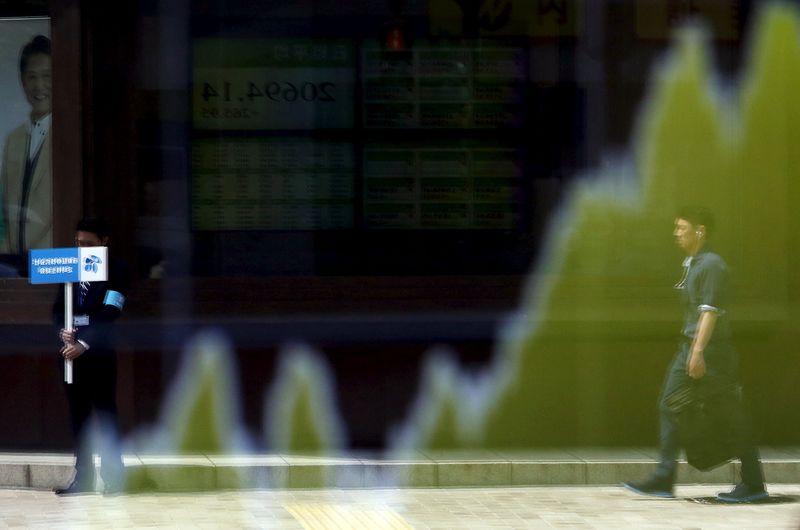Investing.com — Most Asian stocks stayed within a tight range Friday amid increased caution over U.S. interest rate cuts, as investors digested mixed economic data from Japan and China.
Regional markets have taken weak cues from Wall Street, which fell on Thursday after Fed Chairman Jerome Powell warned that the strength of the US economy gave the central bank more time to consider rate cuts.
His comments, coupled with strong inflation data released this week, caused traders to sharply cut their bets on a rate cut in December. U.S. stock index futures also fell in Asian trading, while dollar and government bond yields rose.
Chinese shares fell amid mixed economic data
China’s and the indexes both fell slightly, while Hong Kong’s index was slightly higher after a mixed set of economic data from the mainland.
The Chinese rose less than expected in October, just like the figures. also fell during the month, indicating continued pressure on the real estate market.
But the growth was much greater than expected, largely thanks to Golden Week. These figures raised some hope that retail spending will improve further, especially as Beijing mobilizes more stimulus measures.
Chinese stock indices are expected to lose about 2% this week, while the Hang Seng is down more than 6%. The losses came as China’s latest round of fiscal measures largely disappointed investors hoping for more targeted measures.
Fears of a new trade war with the US also weighed heavily after Donald Trump won the 2024 presidential election.
Japanese markets optimistic despite weak GDP
Japan’s and the indexes rose 0.9% and 0.8% respectively, largely brushing aside data showing economic growth had slowed sharply in the third quarter.
grew 0.9% year-on-year, slightly better than expectations but a sharp deceleration from the previous quarter’s 2.2% increase, which was also revised down.
remained turbulent and was the only source of support for the economy, especially as capital expenditure and foreign demand declined. A strong yen also negatively impacted Japanese exporters during the quarter, although the currency has since weakened sharply.
The weak data boosted hopes that the Bank of Japan will have little room to raise rates further, especially in light of increased political uncertainty.
Broader Asian markets held within a tight range as traders dialed back expectations for an immediate cut in US interest rates.
Australia’s rose 0.5%, while South Korea’s fell 0.5%.
Futures for the Indian index pointed to a weak open after the index entered correction territory from record highs in September.
Indian markets were hit by continued outflows of foreign capital, while optimism about the economy was blunted by persistent inflation.
Sentiment towards broader Asian markets has also been affected by the prospect of a Trump presidency as he has proposed increased tariffs on all imports to the US. China will likely be hit hardest by these tariffs, with Trump proposing a 60% levy.


